The primary symptom is throat discomfort. It could hurt to swallow, making it difficult to consume meals and liquids. Pain, itching, or irritation in the throat are signs of a sore throat.
A sore throat is uncomfortable and may keep you from getting a good night’s sleep even if it isn’t severe enough to warrant a trip to the doctor. To relieve the discomfort and irritability, try using natural therapies.
If you have a severe sore throat, especially if it is getting worse or has continued for many days, schedule an appointment with a doctor to discuss your symptoms. Generally speaking, the remedies listed below may be helpful to relieve a small or common sore throat.
A sore throat won’t go away overnight, but natural remedies like honey, salt water, and herbs can help you feel better. If it doesn’t go better after a week or after switching to over-the-counter medications, consult a doctor.
Honey
Honey mixed with tea or taken on its own is a common home remedy for sore throat symptoms.

According to a 2021 article, honey is just as effective as the cough suppressant dextromethorphan at treating children’s coughs. Robitussin and Delsym both include dextromethorphan as an active ingredient.
A 2021 review of the literature looked at honey’s ability to treat acute upper respiratory tract infections. According to experts, honey is a more potent symptom reliever than certain conventional treatments. Antibiotics and the antihistamine diphenhydramine were among these treatments.
Gargle with saltwater
Gargling with warm salt water helps break up mucous and soothe sore throats. It is also well known to assist in killing throat bacteria.

A saltwater solution can be made using a full glass of warm water and a half teaspoon of salt. Gargle with it to help reduce edema and maintain a clear throat.
The American Osteopathic Association recommends that people with a sore throat gargle with salt water at least
Gargle with baking soda
Although the saltwater gargle is more popular, gargling with a baking soda-saltwater solution also can soothe sore throats. This oral treatment can eradicate bacteria and stop the development of fungus.
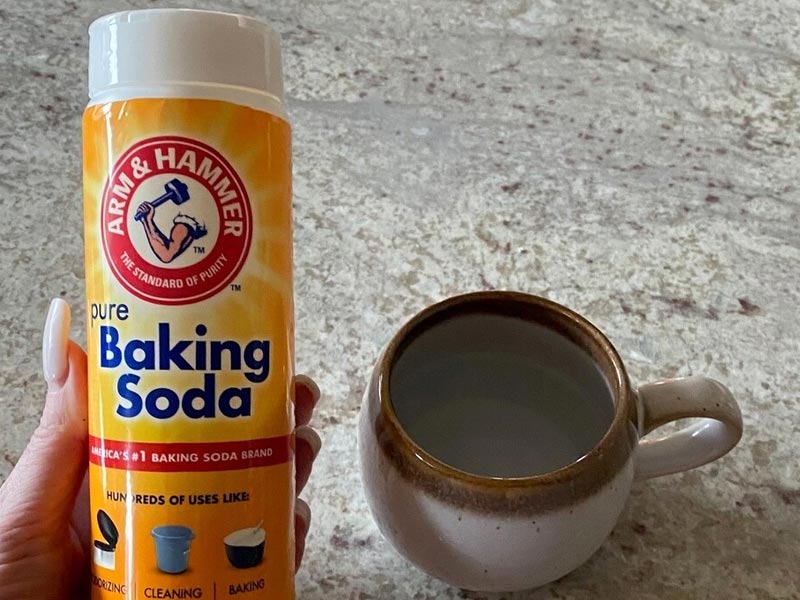
The National Cancer InstituteTrusted Source advises gently swishing around while gargling with a combination of:
1-cup of hot water
Baking soda, 1/4 teaspoon
Salt, 1/8 teaspoon
The NCI advises using the rinse three or four times each day, followed by a plain water rinse.
Chamomile tea
Tea made from the naturally calming chamomile flower has long been used medicinally, notably to soothe sore throats. It is astringent, anti-inflammatory, and antioxidant.
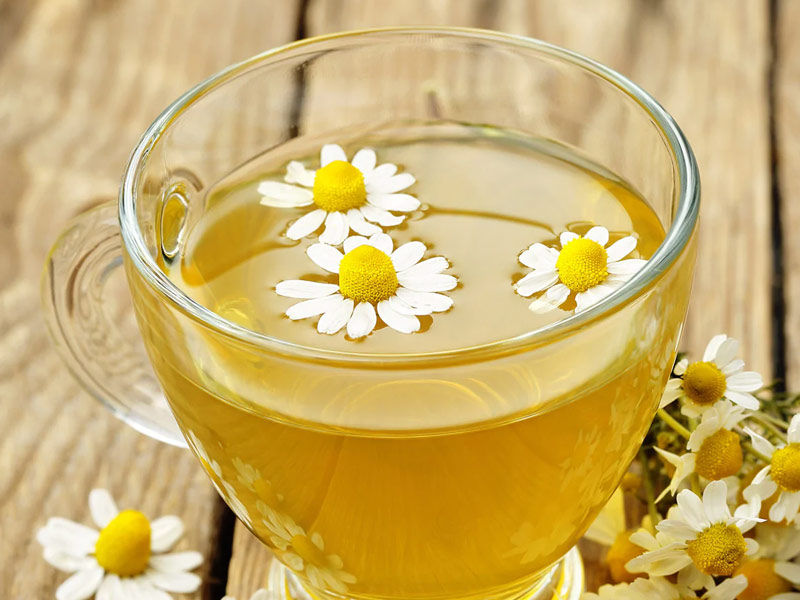
An older 2010 literature review noted that studies have demonstrated that chamomile steam inhalation can help ease cold symptoms, including a sore throat.
Drinking chamomile tea might have the same advantage. Also, it might boost your immune system and aid your body in fighting off the virus that initially gave you a sore throat.
Peppermint
The power of peppermint to freshen the breath is well known. A 2019 literature review found that it also has some antibacterial, antiviral, and anti-inflammatory activities.
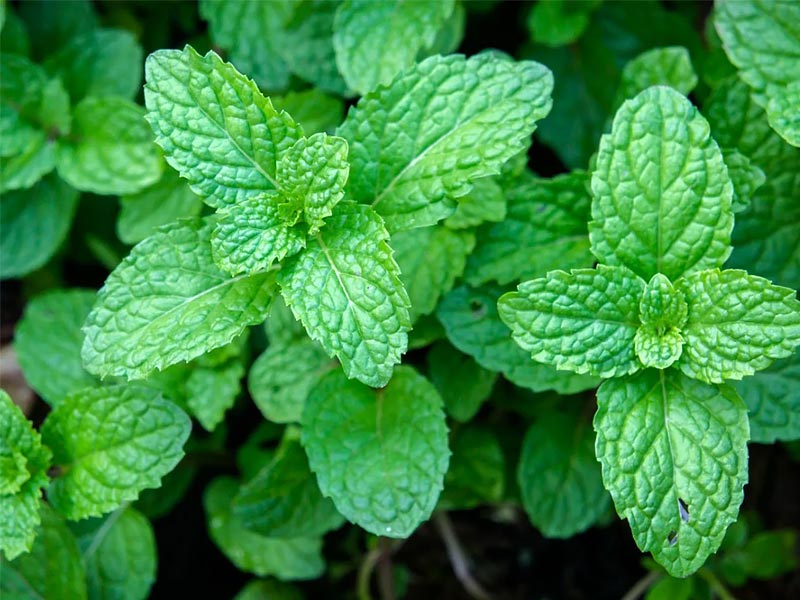
Moreover, peppermint includes menthol, which thins mucus and soothes coughs and sore throats.
You can buy numerous peppermint teas, but you may also prepare your own. Boil some water, add some dried peppermint leaves, and let the concoction sit for a while. After a few minutes, filter the tea and give it a moment to cool.
The use of diluted peppermint oil sprays to treat aching muscles
Fenugreek
There are numerous ways to consume the herb fenugreek. Fenugreek seeds, fenugreek oil, and fenugreek tea are all edible herb forms. Fenugreek tea is a popular sore throat treatment.
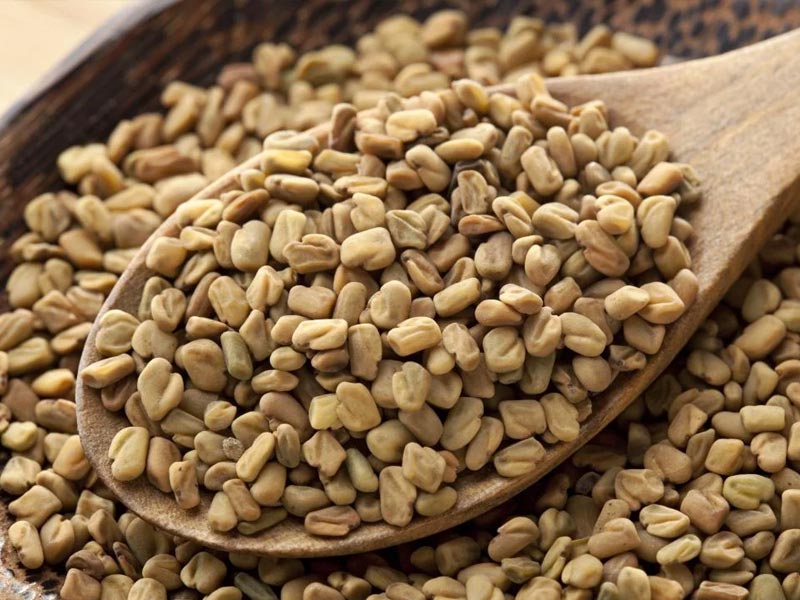
The therapeutic properties of fenugreek are demonstrated by a 2018 literature review. It can, among other things, assist with:
reduce discomfort, such as menstrual cramps, eliminate irritant or inflammatory microorganisms, and act as a powerful antifungal
Licorice root
Sore throats have long been treated with licorice root. An earlier 2009 study on postoperative sore throats found that licorice, when combined with water to make a gargling solution, is beneficial in reducing symptoms.
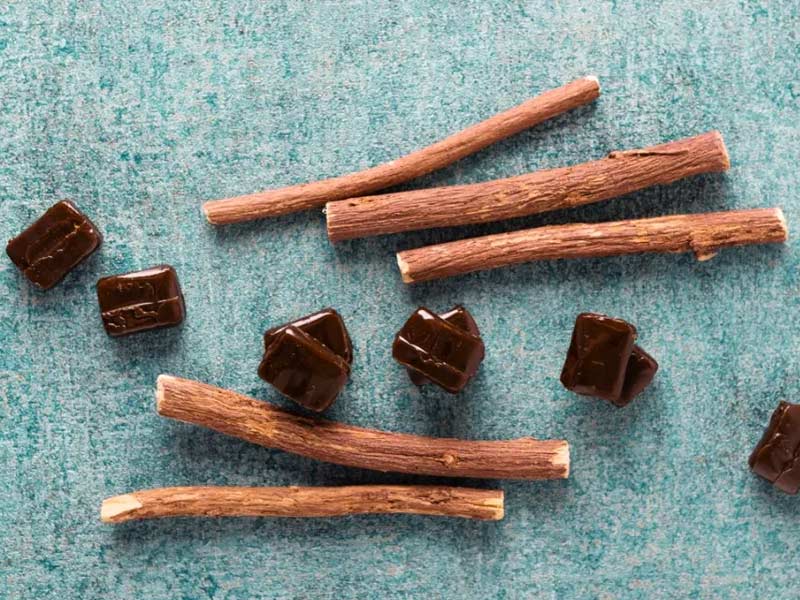
A 2019 study also discovered that licorice root tea was the best herbal infusion for preventing the growth of Streptococcus pyogenes. Strep throat is caused by this bacterium.

























